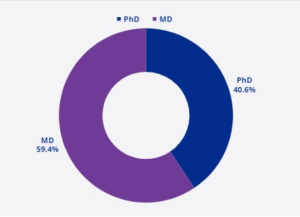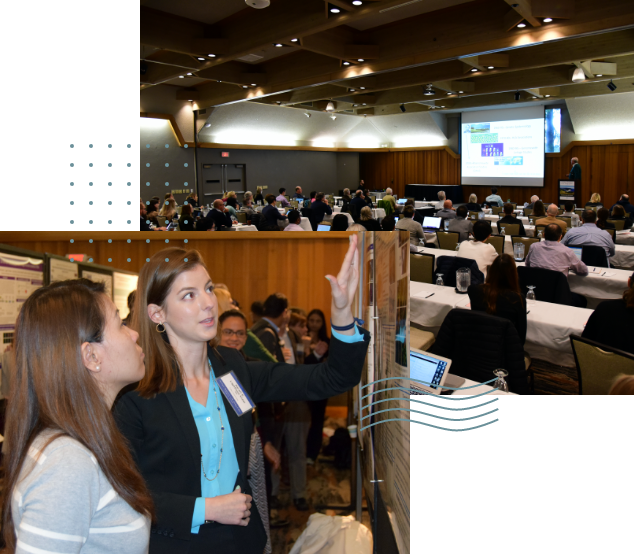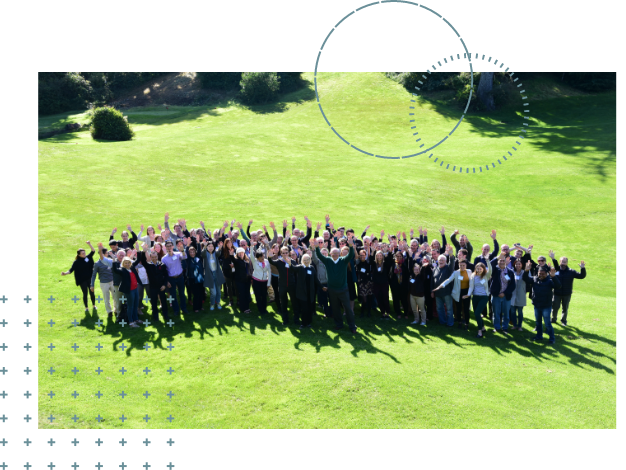Inspiring clinicians and investigators since 1950
We are at an unprecedented nexus in medical research with the rise of distinct therapeutic platforms that promise definitive therapies for previously chronic or incurable diseases. Because of its accessibility, the skin has traditionally provided mechanistic insights that underpin the platform, and a proving ground for the early human studies.
At the 72nd annual Montagna Symposium, participants will learn about the basic science underpinnings for exciting emerging small molecule, antibody, RNA, and cell and gene therapeutics, early successes of the platform and their targets, and gaps in knowledge where additional investigation will lead to improved and long-lasting definitive therapies.
Program Chair
Anthony Oro, MD, PhD
Co-Organizers
Masa Amagai, MD, PhD
Aimee Payne, MD, PhD
Symposium Co-directors
Tamia Harris-Tryon, MD, PhD
Sancy Leachman, MD, PhD
Dennis Roop, PhD
Symposium Director Emerita
Molly Kulesz-Martin, PhD
Important dates:
- May 1: Registration Open
- August 1: Abstract Submission Deadline
- August 31: Early Bird Registration Ends (Discounted Price)
- October 15: Registration Closes
Symposium Objectives (subject to change):
- Further the attendees’ understanding of the mechanistic basis of tissue regeneration therapies and the current patient responses.
- Elucidate the mechanistic basis of precision immune therapies and the current patient responses
- Explore the mechanistic basis of novel immunomodulatory therapies and the current patient responses.
- Gain a better understanding of the mechanistic basis of RNA medicines and the current patient responses
- Explore the mechanistic basis of novel cancer therapeutics and the current patient responses, generating dialogue to bridge these gaps and inspire research directions.
- Facilitate networking activities as a catalyst for future collaborative research endeavors and relationships
Sessions:
- Session 1: Novel Approaches and Targets for Precision Immune Cell Therapies
- Session 2: Tissue Regeneration Therapeutic Approaches
- Session 3: Novel Immuomodulatory Approaches to Cutaneous Disease
- Session 4: RNA Medicines for Cutaneous Diseases
- Session 5: Novel Cancer Therapeutics for Cutaneous Oncology
Target Audiences:
Oncologists, Immunologists, Dermatologists, Biologists, Geneticists, Biomedical Engineers. MDs (Including HCPs), PhDs, MD/PhDs, Fellows, Dermatology Residents, Post Doctoral Researchers, Students.

The breakdown of attendees with a PhD and MD shows that clinicians and researchers attend this conference in comparable numbers, meeting our goal to bridge the gap between research and clinical care and create a multi-disciplinary event.
- Past attendees have provided the following feedback:
- 95% of respondents had met researchers or clinicians with whom they might consult or collaborate.
- 92% of surveyed attendees said they learned new information and strategies that they can apply to work or practice.
- 98% of attendees indicated they had learned novel ideas/strategies to treat skin conditions.
- 97% of survey respondents rated the contribution to their research knowledge as excellent or good.
- 30% of survey respondents indicated they were practicing MDs/DOs in the medical field.

“The Montagna Symposium was an incredible opportunity to interact with many leading scientists in skin biology…I look forward to returning many more times over the course of my career!”
Candidate, Washington University
“It was my first international conference and my first time in the States. It was really a memorable one for me, my career, and my family. There was a great synergy between the clinicians and the basic scientist at the meeting.”
“I found the meeting’s intimate setting especially fruitful for scientific discussions and professional development. This was by far the best medical or scientific meeting I have ever attended.”
Assistant Professor of Dermatology, University of California
“The rich diversity in the meeting was top notch. In all, it was a great meeting for me and one to remember for long time to come.”
“At the wonderful Montagna Symposium, I met many experts in stem cell research in skin biology…The meeting has brought me to a new stage as a researcher in skin biology.”
Assistant Professor, Gifu University School of Medicine
“The program…had nice mixture of basic biology and translational research, and established and young investigators…I would say this was one of the best meetings ever.”
Assistant Professor, Oregon Health & Science University
“The 70th annual meeting was FANTASTIC with basic, translational, and clinically relevant insights.”
